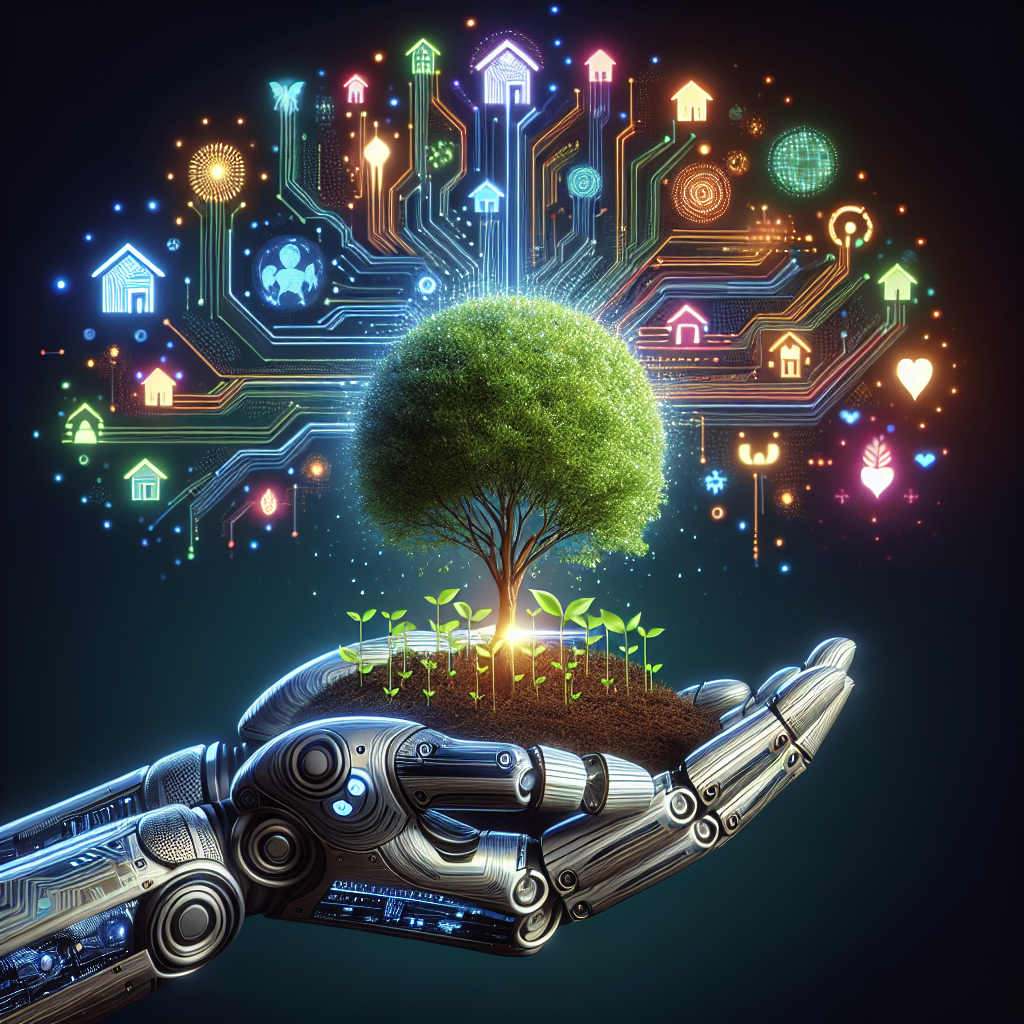Artificial Intelligence (AI) is rapidly transforming various industries, including the nonprofit sector. Nonprofits are leveraging AI technology to increase efficiency, improve decision-making, and enhance their impact on society. From fundraising to program delivery, AI is revolutionizing the way nonprofits operate and make a difference in the world.
One of the key ways in which AI is helping nonprofits is through data analysis and predictive analytics. Nonprofits collect vast amounts of data on donors, volunteers, and program participants. AI algorithms can analyze this data to uncover patterns and insights that can inform strategic decisions. For example, AI can predict donor behavior and help organizations tailor their fundraising campaigns to maximize donations. AI can also help nonprofits identify at-risk individuals who may benefit from their programs and services.
Another way in which AI is making a difference in the nonprofit sector is through automation. Nonprofits often have limited resources and staff, making it challenging to handle administrative tasks efficiently. AI-powered tools can automate routine tasks such as scheduling, email communication, and data entry, freeing up staff to focus on more strategic initiatives. This automation not only saves time and resources but also improves accuracy and reduces the risk of human error.
AI is also playing a crucial role in program delivery for nonprofits. AI-powered chatbots, for example, can provide instant support to program participants, answering their questions and guiding them through the application process. This level of support can improve the overall user experience and increase engagement with the organization’s programs. AI can also help nonprofits personalize their services based on individual preferences and needs, leading to more effective outcomes for program participants.
Furthermore, AI is enabling nonprofits to better understand and engage with their stakeholders. Social media listening tools powered by AI can track conversations about the organization and identify trends and sentiments among supporters. This information can help nonprofits tailor their messaging and outreach efforts to better resonate with their target audience. AI can also analyze feedback from stakeholders to identify areas for improvement and innovation within the organization.
In addition to improving operations and program delivery, AI is also helping nonprofits in fundraising efforts. AI-powered fundraising platforms can analyze donor data to predict giving patterns and identify potential major donors. These platforms can also personalize fundraising appeals based on donor preferences and behavior, increasing the likelihood of a successful fundraising campaign. AI can also help nonprofits identify new funding opportunities and partnerships through data analysis and predictive modeling.
Overall, AI is empowering nonprofits to make a greater impact on their communities and achieve their missions more effectively. By leveraging AI technology, nonprofits can streamline their operations, enhance their programs, and engage with stakeholders in more meaningful ways. AI is revolutionizing the way nonprofits operate and enabling them to adapt to the rapidly changing landscape of the nonprofit sector.
FAQs:
1. How can nonprofits afford to implement AI technology?
Nonprofits can access AI technology through various affordable options, such as cloud-based platforms and open-source software. Many tech companies also offer discounts or grants to nonprofits to help them implement AI solutions. Additionally, nonprofits can collaborate with tech volunteers or partner with AI experts to develop customized solutions at a lower cost.
2. Are AI-powered tools secure for nonprofits to use?
Security is a top priority when implementing AI technology for nonprofits. It is essential to work with reputable AI providers that prioritize data security and privacy. Nonprofits should also implement robust security measures, such as encryption and access controls, to protect sensitive data from cyber threats.
3. How can AI help nonprofits engage with donors and supporters?
AI can enhance donor engagement by analyzing donor data to personalize communication and fundraising appeals. AI-powered chatbots can provide instant support to donors, answering their questions and guiding them through the donation process. Social media listening tools powered by AI can track conversations about the organization and identify trends among supporters.
4. What are some examples of AI applications in the nonprofit sector?
Some examples of AI applications in the nonprofit sector include predictive analytics for fundraising, automation of administrative tasks, personalized program delivery through chatbots, and social media listening tools for stakeholder engagement. AI technology is being used in various ways to help nonprofits improve efficiency, decision-making, and impact.
5. How can nonprofits measure the impact of AI technology on their organization?
Nonprofits can measure the impact of AI technology by tracking key performance indicators (KPIs) such as fundraising revenue, program outcomes, donor engagement, and operational efficiency. By comparing these metrics before and after implementing AI solutions, nonprofits can evaluate the effectiveness of AI technology in achieving their goals and making a greater impact on their communities.

